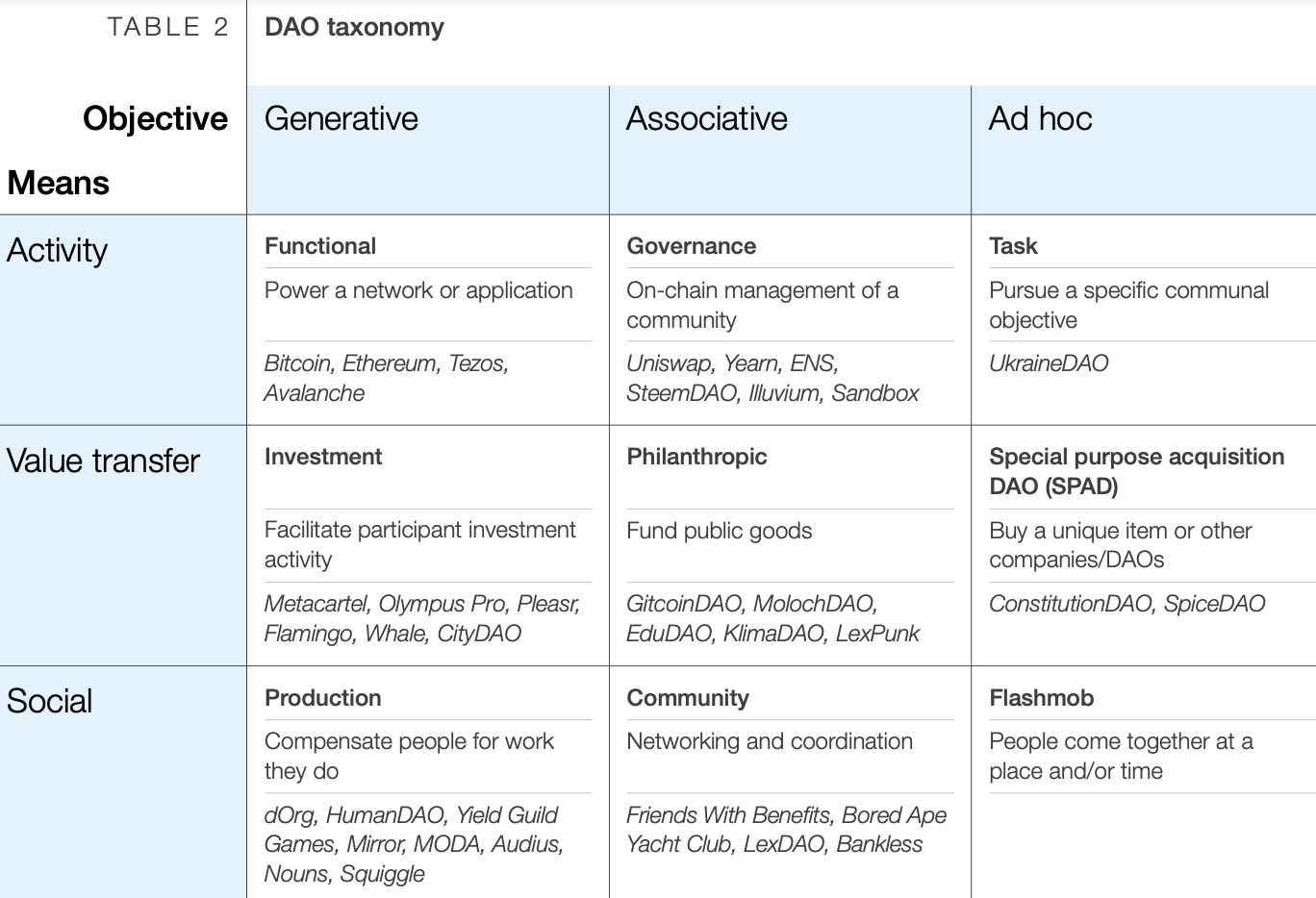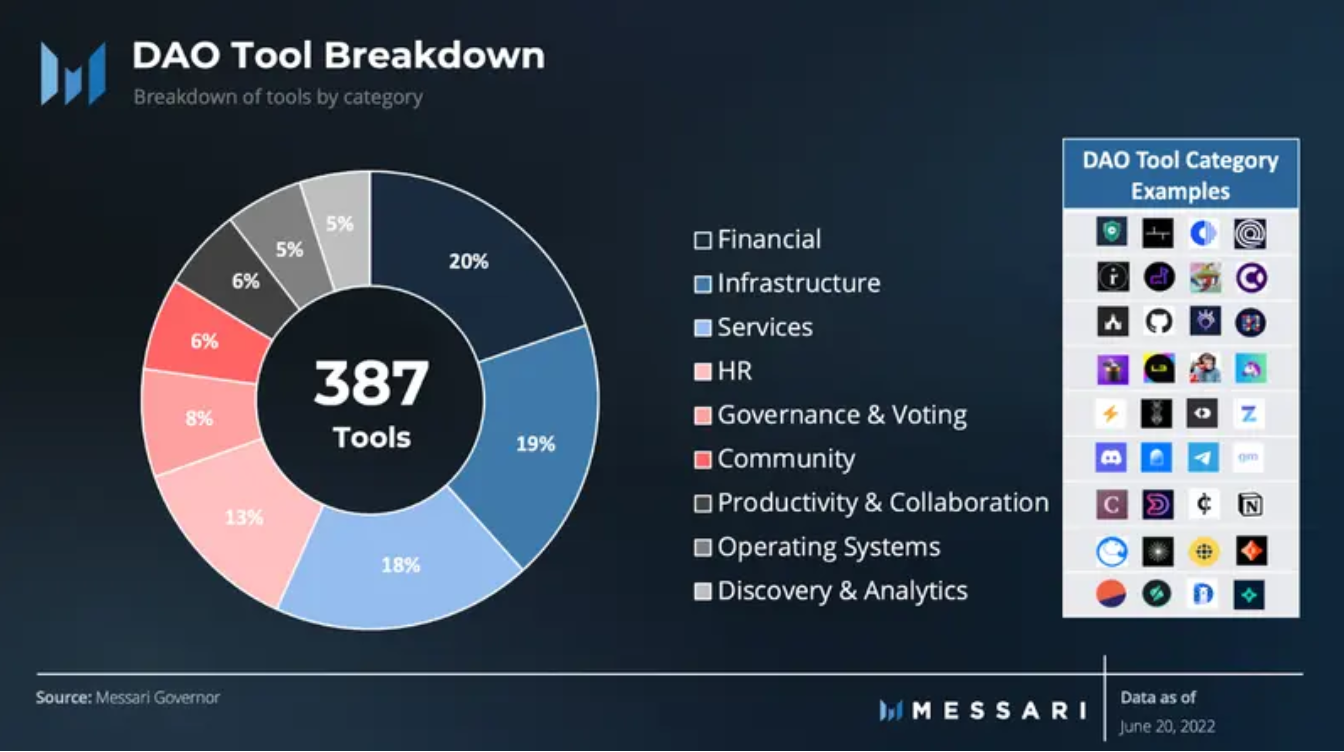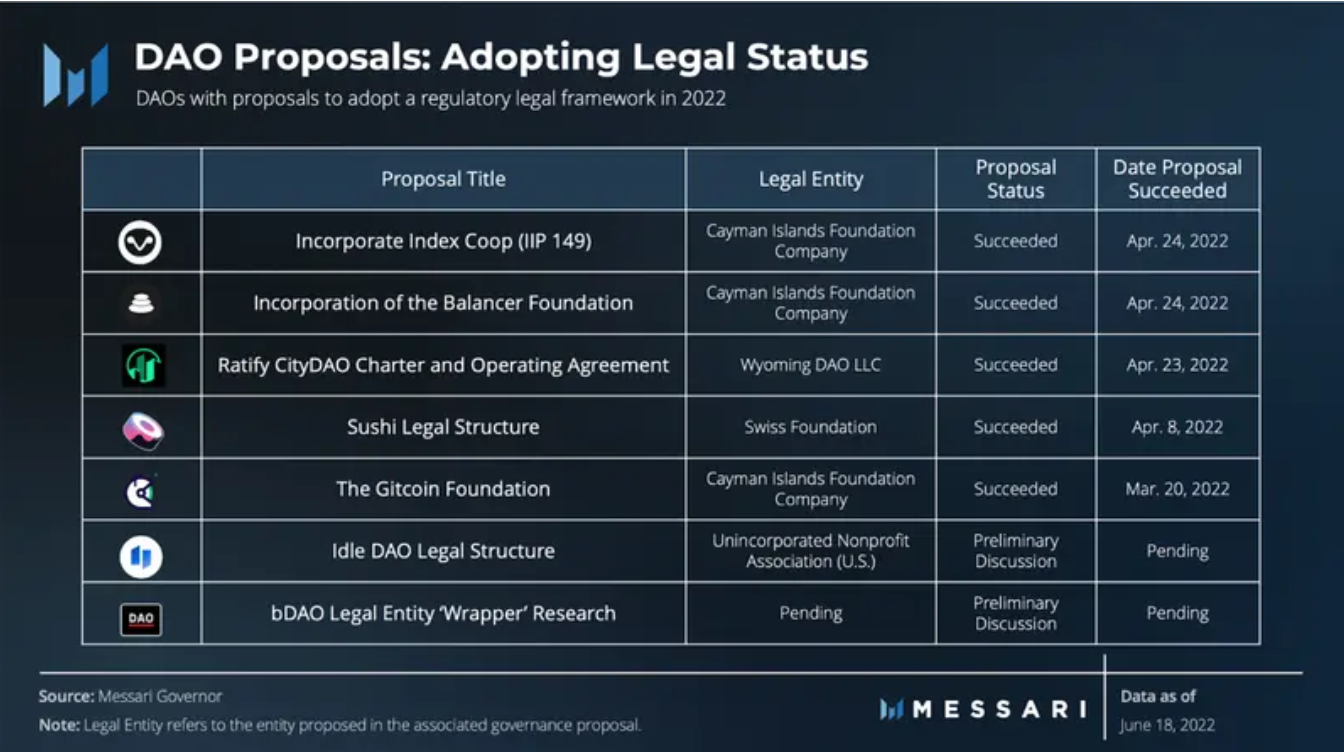It’s somewhat of a utopian ideal. No centralized entity, inclusivity, and reward based purely on value created. These are just some of the attributes which make up DAOs, Decentralised Autonomous Organisations.
“DAOs form with a mission,” said Chris “NFThinker” Biele, a Bankless DAO contributor. “People come together surrounding that mission and form a decentralized community.”

If you have ventured into the world of Decentralised Finance (DeFi) and Web3 you may have come across the term “DAO.” These somewhat mysterious entities are gaining traction in crypto and the outside world.
“I am in a few DAOs,” said NFThinker. “One is focused on improving education in crypto, and another is forming to invest in community-owned vintage race cars and events surrounding them. Really, DAOs can form around any common goal or interest.”
In the past year, there have been reports of DAOs bidding for rare copies of the American Constitution, raising funds for Ukraine, aiming to buy an NBA team, and purchasing property. However, their legal status remains uncertain, and many continue to be confused by the entities themselves.
So what actually is a DAO?
As quoted above, DAOs are fundamentally a community formed around a common purpose or interest. They use various aspects of Web3, such as blockchain and crypto assets, to form, carry out activities and make decisions.
“You’re galvanized by a mission,” said Bo Brustkern, CEO and Co-Founder of Fintech Nexus and Bankless DAO contributor. “You gather anonymously, or semi-anonymously, and then you’re afforded the dignity and respect of being a part of the community. And the respect you earn is actually earned from the value you provide. It’s that simple.”

According to the analytics service DeepDAO, in 2021, the value of DAO treasuries surged from $380 million to a peak of $16 billion in September. The number of DAO participants increased by 130 times, from 13,000 to 1.6 million.
The first DAO was formed in 2016. Known as “The DAO,” participants raised $150 million in ether to create a treasury for investment in blockchain projects in a few weeks. Soon after formation, a bug in the DAO’s code was exploited and many of the funds were siphoned off, sparking a wave of development to improve the structure and security of the organizations.
According to DeFiPedia, to create a successful DAO, five components are needed. After an initial purpose the project is formed with a community following, a voting method, a governance token or sharing system and a plan to manage funds must be established.
NFThinker explained that members can join in three ways, depending on the agreed DAO structure; token by purchase, one token per user, and a hybrid where tokens are rewarded according to the amount of contribution to the cause of the DAO.
As ethereum creator Vitalik Buterin, among others, theorized in 2014, DAOs are organizations with “automation at the center, humans at the edges.” They are powered by smart contracts which execute functions according to code on a blockchain, ensuring a decentralized system.

The landscape of DAOs has diversified extensively since 2016, creating a wide variety of structures. According to the World Economic Forum’s report on the organizations, DAOs can be split into nine categories. It states that broadly the sector can be broken down according to objectives and means by which they attain the objective. DAOs can range from powering a network to pursuing a cause and can achieve their goals through arranging activities or issuing funds.
Voting structures are at the organization’s heart, with tokens usually equating to leverage within the voting system. However, many DAOs mean many ways of attaining token leverage within the voting systems. Tools such as quadratic voting are currently being tested within communities in the development of more democratic organizations.
As with many Web3-based technologies, transparency, trust, speed of development, and adaptability are seen to be some of the DAOs’ strengths, although even the most avid DAO contributors and advocates admit their continued shortcomings in security, governance, and legal uncertainty.
Potential found in community focus
DAOs, due to their community-based, decentralized approach, have potential in various areas.
“DAOs are becoming the next brands. They add value,” said NFThinker. He explained that various centralized brands have already launched DAOs to enhance and use community engagement.
In an insights paper released by Messari Governor, it was found community tools such as Discord and Medium for discussion, publishing, and moderating were the most used within DAOs. This active engagement of the community has already been used to boost growth for brands such as Adidas in their move into decentralized fashion within the metaverse. In addition, many see the potential for co-creation, allowing the DAO community to actively contribute to developing their favorite brands.

Another area that could help spread wider adoption is the anonymity of the contributors. The barrier to entry into DAOs is typically low, and online presence does not need to be associated with a particular individual. Contributors can be whoever they want to be, with their relationship with other contributors assessed purely on the value they bring to the DAO and their input into discussions and proposals.
“One of the really neat things about DAOs is that they are permissionless,” said Brustkern. “They’re semi-anonymous or completely anonymous. And that creates a really special organizational kind of dynamic.”
“There is an inclusiveness in this, the way that people enter with their little avatar or pseudonym and whatever that is, that allows for people to start from a very neutral point. And then it’s all about the value you add.”
The issue of diversity is prevalent in many sectors, including fintech and crypto. The inclusivity aspect of DAOs creates a glimpse into a world with organizational structures where the issue of diversity is addressed, reaping the benefits of diverse minds joined together to reach a common goal.
“It’s an ideal scenario for someone who can add a lot of value but may not be on the track that society dictates to enter an organization and be given a lot of respect out of the gates.”
Rapid innovation in governance
For many contributors, governance also poses the largest area of potential. Despite current uncertainty around governance, due in part to the innovative decentralized approach, contributors see DAOs as an opportunity to rework traditional structures, resulting in a more democratic and decentralized outcome.
“The things that are going on in the world of DAOs are really, really interesting from an organizational development and from an entrepreneurial perspective,” continued Brustkern. “And there’s a huge amount of innovation and experimentation that’s going on around governance.”
Unlike in traditional structures, such as governments, innovation within governance seems to have been attained more efficiently within DAOs. Brustkern explained that already more development has been made in recent years within DAOs than in centuries before.
“There’s been thousands of DAOs that have been created, all of which have governance structures. Some of them are really run-of-the-mill, like, one person, one vote, or token-weighted voting. But, you know, you get into things like quadratic voting and, and other elements like that, and it starts to get really interesting, really fast.
“I would say that that’s one of the neatest things about DAOs is that they are beginning to be havens for experimentation.”
Within this “haven,” new structures for non-profit organizations are being explored. Andrew Kline, co-creator of the non-profit NFT platform and DAO, Doingud, said, “We firmly believe DAOs will be the non-profits of the future.”
He explained the governance structures and transparency of DAOs lend themself to creating fair and trustworthy non-profits, where contributors can collectively decide on how to distribute resources. As governance structures for DAOs develop, the design for non-profits can continue to evolve.
Uncertainty strikes concerns
Despite their potential, DAOs continue to be in early stages. In events such as ETH Barcelona, experts in the field continue to break down the components of the organizations, musing on how to push the technology further.
With early development comes multiple concerns and issues. Legal uncertainty and security are two of the significant threats to the continued application of DAOs. The organizations can handle large treasuries and own assets, but without a clear legal status, DAOs cannot take advantage of the same protections as corporations.
Legal personhood and limited liability are just two of the legal structures in place for protecting corporations’ constituents that are not currently applicable to DAOs. A void of legal coverage allows for events such as the Juno DAOs attempt to remove a whale’s token allocation, claiming that the whale unfairly gamed an airdrop.
Various institutions worldwide are attempting to address these issues. Colorado’s Uniform Limited Cooperative Association Act and Wyoming’s DAO legislation provide pathways for DAOs to attain legal recognition, while various private entities operating under existing law jurisdictions are working to assist outside America.

In June 2022, a draft of the Lummis-Gillibrand Responsible Financial Innovation Act was published on Twitter, including a section on DAOs. If passed in its current form, the bill would require DAOs to register as recognizable entities by the end of 2022, providing a legal structure.
DAOs are also attempting to regulate the space themselves. Messari Governor has reported that there are a few proposals exploring regulatory frameworks for DAOs that have already achieved a successful consensus in governance.
Security is also an issue, the anonymity and low barrier to accessing DAOs leave them vulnerable to malicious actors and hacks. Improvements in cryptography and development in blockchain security are likely to mitigate these risks as the sector evolves.
DAOs – Is the world ready?
NFThinker explained that he felt the world could be ready to adopt DAOs; however, like many components of the Web3 ecosystem, extensive jargon is currently making them inaccessible and daunting for the average person.
“For the people within the niche, the technical words that are used make a difference to us. Layer two means something to me. Gas means something to me. So you can target high interest by using these things. But it falls on deaf ears beyond that.”
“I think we’re still using it because it’s still an important message to get through to current users. But the sooner we can step away from and get to that seamless, “it just works” stage, the better off we’ll be.”
DAOs are receiving attention and, within recent years, have shown success, marking a step towards mass acceptance and potential adoption. However, many interviewees for this article reiterated that the organizations are in their relative infancy. Significant issues are still prevalent and are still being addressed before there will be acceptance and broader adoption.
Aside from the uncertainty surrounding their status within traditional society, DAOs represent an opportunity. Many of the components attributed to organizations are thrown out the window, and instead, we are presented with a new outlook. Governance, non-profit structures, and inclusivity are some of many things addressed, outlining lessons to be learned, innovation, and the possibility of a new, fairer future.
RELATED:
The post DAOs – The Web3 entities that may spark revolutions appeared first on News.